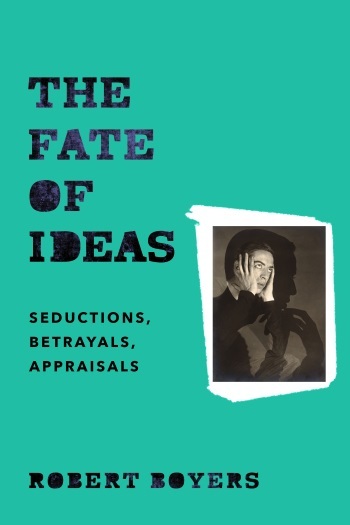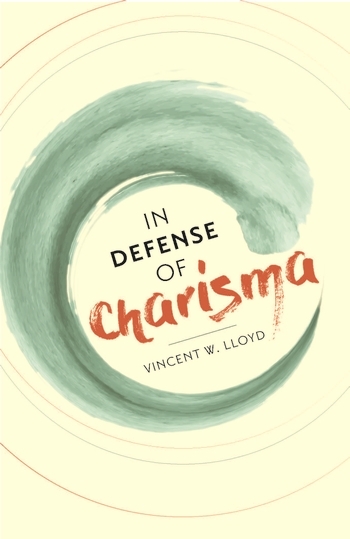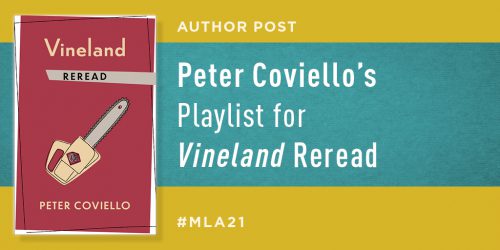Interview with Robert Boyers, author of "The Fate of Ideas"
In The Fate of Ideas: Seductions, Betrayals, Appraisals, Robert Boyers strikes an unusual balance between cultural criticism and the personal or memoiristic essay. Examining a wide range of ideas—from pleasure and fidelity to “the other” and authority—he argues that people often use ideas to deceive themselves and to deny what is most real about their own experience of the world. Drawing on colorful characters and events in his own life, Boyers tests his sense of particular ideas and considers how their meanings change over time and how we can resist being violated by them. The following is an interview with Boyers:
Q: Usually we think of ideas as the sort of thing that belongs to philosophers and thinkers, and yet yours is a book that often addresses issues that belong to ordinary life and ordinary people. Did you aim, in writing your book, to rescue ideas from philosophers and academics?
Robert Boyers: “Rescue” isn’t quite the word I would use. But I have often felt that in academic discussions of ideas the issues that matter most to all of us are largely ignored. Who would not be disappointed by what passes for serious discussion of an idea like “identity” in the current academic climate? I wanted in my book to demonstrate what it might really mean to take an idea seriously by evoking situations in my own life and in the lives of actual others and then looking closely at the playing out of those ideas.
One such idea I engage in my new book is realism. When I hear academics talk about it, I find, almost invariably, that they don’t begin to do justice to what should be an enormously attractive idea. My students tend to think of so-called realists as sober, not especially interesting people who consider only the given facts of any given case as they labor to arrive at a fair-minded assessment. But for me reality is not the stone we stub our toe on. On the contrary, it’s nothing we ought to associate with the objectively obvious or indisputable. I’ve always been drawn to writers who can never look at a so-called fact without wondering what it might be, or ought to be, who know that what is “real” can only be discovered by imagining alternatives to the established reality most of us believe is all there is. In the chapter of my book devoted to the subject I tried to portray realism as an urgent and embattled attitude to experience, and I tried to identify moments in my life when my own struggle to avoid an easy submission to the obvious saved me from yielding too comfortably to the going view of things.
Q: Are there ideas you take up in your book that seem to you especially dangerous?
RB: Any idea can seem dangerous when you consider how it may be abused. The idea that it’s good to know as much as you can about the author of a novel if you hope to interpret it correctly is, on the face of it, not at all a dangerous idea. Who would not want to know something at least about the background or identity of an author as an aid to interpretation of a book or artwork? And yet, in the chapter of my book devoted to that very question, I argue that there are serious dangers entailed in imposing upon a work of fiction, or a painting, or a poem, expectations drawn from your knowledge of a given writer or artist. Which dangers? For example, those having to do with expecting a black woman writer—based on your idea of what her authorial identity entails—to say in her novel what a black woman writer is supposed to say, and then being disappointed to find that her novel offers something else entirely, something unpredictable and honest and elusive. Something you can’t reduce to a program or a grievance.
Q: Is that the most dangerous idea you treat in your book?
RB: By no means. I suppose that the idea of “the other” is in many ways the most problematic idea I examine. Unfortunate that much of the attention it has attracted in recent years is misguided, or worse. In fact some of the writing on “the other” is sheer cant inspired by varieties of political correctness. I worried, when I began to plan a chapter on this subject, that I wouldn’t quite know how to speak about the most sensitive issues without seeming unduly provocative. But then I came more and more to realize that I’ve been thinking about “the other” for my entire life, and that my own 1950s childhood, as a working-class Jewish kid in a largely black Brooklyn neighborhood, would provide a rich foundation for my stories and reflections. Once I got going on this chapter I found the idea as potentially explosive as I suspected it would be, and enormously important as a way of understanding who we are and what we hope to become. Not at all surprising that the narratives I developed in this chapter opened up for me the difficulty of doing justice to an idea that typically inspires varieties of wishful thinking, some of which I anatomize as I proceed.
Q: How did you decide upon which ideas to include in your book?
RB: Of course I wanted to write about ideas—some of them commonplace ideas, like the importance of “judgment”—that interest me, though I knew that readers of my book might not share my enthusiasm—at least at first. I’m not sure that most readers of the book will at once think “the sublime” an especially compelling idea, but as I considered devoting a chapter to the subject I found that I had fresh things to say about it and might conceivably bring people around to its importance, in part by dramatizing my own, sometimes laughable attempts to make the idea real to myself. In fact I wrote partial drafts of several chapters not included in the book, on subjects I thought promising but found I could not bring adequately to life. This was true with a chapter I had begun on the subject of “evil,” which I decided to abandon, largely because I couldn’t find in my own most intimate experience a basis for my reflections. The garden variety moral failures I could bring myself to acknowledge didn’t quite measure up to what I had in mind when I thought about “evil,” and the examples I drew upon in my initial draft—Eichmann, Stalin, Iago—were too familiar and obvious to serve my purpose. On the other hand, though I feared that the meager three months I spent as a patient in analysis would ensure that what I wrote about it in another chapter would be thin, I soon discovered that the story of my friendship with a psychoanalyst named Leslie H. Farber would allow me to take possession of the subject in an amusing, sometimes hilarious way.
Q: When did you first decide to write a book about ideas?
RB: I’ve been writing about ideas for a long time. My essays on individual writers—many of them collected in earlier books—often focus on an idea that is central to their work or vision. Several of my books revolve around an idea—such as the idea of political fiction, or the avant-garde. But in truth I’ve been thinking about the fate of ideas in general for at least forty years. In part this obsession of mine has had to do with my sense that certain ideas that once seemed compelling—certainly to people of my generation—have largely disappeared.
I ask in the book whether anyone can now speak of “disinterestedness” with the sort of passion the idea once inspired. And I wonder whether anyone will now think there is anything worth arguing about in connection with the idea of “masscult and midcult” elaborated by a once influential cultural critic like Dwight MacDonald a half century ago. Is it any longer possible—I ask the question in a long chapter of my book devoted to the subject—to take seriously the idea of fidelity, which seems now to be invoked mainly by neo-puritanical guardians of “morality”? In fact, I first thought about writing this book in the late 1960s when I began to teach the work of the Victorian culture critics—people like Ruskin, Carlyle, Mill and Arnold—and recognized that the ideas they elaborated, ideas that seemed to me indispensable, were out of reach, not only to my own very bright students but even to my colleagues, who belonged more wholly to the present than I did and had little curiosity about how they arrived at the standard assumptions that defined our generation.
Q: Do you suppose that some readers of your book will be moved to resist or dispute your characterizations of particular ideas?
RB: Of course. I’d be disappointed if the book didn’t inspire at least some misgiving. Bland acceptance is the last thing I’d expect. When I wrote the chapter on “authority” and told a writer-friend that I’d built it around Susan Sontag, my friend could only express incredulity at my choice of so improbable a figure for so important a subject. But then that was, in a way, the challenge I faced as I wrote my way into that chapter, confronting, at every turn, the resistance I imagined I would face. In fact, I couldn’t help thinking that even Sontag, had she been alive to read the chapter, might well have counseled me to change direction. The truth is, the best writing always seems to me to incite conversation and conflict, and often I write to work through my own misgivings about ideas and impressions that I can’t quite give up on. I thought, when I wrote about pleasure for this book, in a chapter originally delivered as a public lecture, that I had found an ideal way to come at the subject, by revisiting Lionel Trilling’s classic essay on “the fate of pleasure.” But soon I felt uneasy about that approach, and decided to tackle “pleasure” in another way entirely in a part two largely focused on very intimate aspects of my own experience. So that the chapter really sets up a sort of conversation with myself, one in which I give myself permission to resist aspects of my own argument. Readers who are moved to resist some of what I say about pleasure will find in my chapter an example of the very resistance they wish to summon.
Q: Are there ideas in circulation nowadays that you would like to tackle in a subsequent book?
RB: I’ve already outlined a few chapters of what might well turn out to be another book. Of course it’s a bit soon to be thinking that far ahead, and yet I’m so often irritated by the way that important ideas are handled in the mainstream press and in routine public or academic discourse that I find myself wanting to express that irritation and to take on what I regard as the problem. One idea that has been sadly abused and misunderstood is “blaming the victim.” Another is “authenticity.” And of course there are others. But then I know that it is nearly impossible to dislodge ideas that have been embraced precisely because they allow people to hold convictions without having to think much about the consequences or implications of their avowals and assumptions. Whenever I feel enthusiastic about tackling a bad or misunderstood idea I try to remember that the more I myself think about an idea the more I am likely to be flooded with doubts. But then I have a fondness for uncertainty and an appetite for conflict, and my hope is that my present book on the fate of ideas will convey that appetite in a way that seems infectious.





1 Response